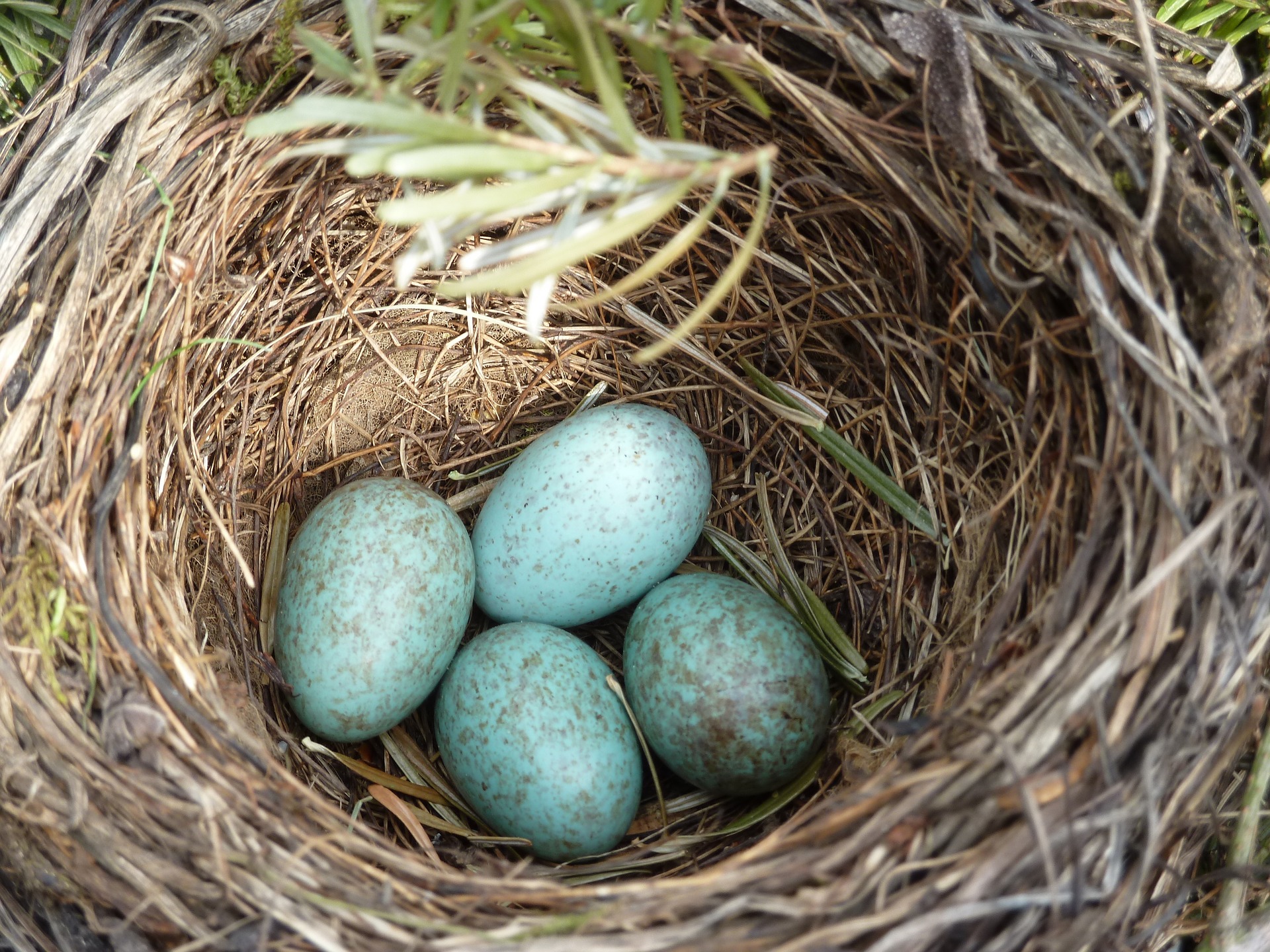Life on Land
Publish your ecology research fast. Openly. Without restrictions.
Submit nowA thriving ecosystem is a fundamental requirement for successful, sustainable life on land. And yet the world is in an ecological crisis – with almost 1 million animal and plant species threatened with extinction, and 10 million hectares of forest destroyed year on year.
The 15th Global Goal from the United Nations aims to protect, restore and promote life on land by focusing on twelve targets covering everything from ending deforestation, to combating the trafficking of protected species. In order to safeguard our planet’s ecosystem and achieve Global Goal 15 by 2030, policymakers and practitioners need access to the latest cutting-edge research in all areas of ecology, from forest management to biodiversity, and beyond. That’s where F1000Research can help.
F1000Research is the ideal publishing platform for all your ecology research outputs – from traditional Research Articles to more unique formats, like Software Tool Articles and Data Notes. We offer rapid, open publication as standard, meaning your article could be published in as few as 14 days, so your work can start to make impact sooner. All articles undergo post-publication peer review, with expert reviews freely available.
Combining this unique publication model with our progressive Open Data Policy makes F1000Research the perfect home for ecology research with the potential to make real-world impact.
More about this Global Goal
Want to find out more about how to support the Life on Land goal? The United Nations have a wide range of free resources for you to explore – including facts and figures, targets, yearly progress updates, and more.
Learn moreWhy publish your ecology research on F1000Research?
Publish without delays
Our rapid publication model means your research could be published in as few as 14 days, ready to be read and cited by anyone, anywhere. All articles undergo transparent, post-publication peer review, with expert views freely available.
Make real-world impact
All articles published on F1000Research are fully open access, meaning your research can be read and used by anyone – including practitioners, policymakers, NGOs, and fellow researchers. This is perfect for fields like ecology, where findings can make real-world impact.
Boost the visibility of your work
Once your article has passed peer review, inclusion in Scopus, PubMed, Google Scholar and other major indexers will help it reach more readers. Plus, on F1000Research your article is supported by machine-readable metadata to boost discoverability.
Feature in one of our Gateways
Depending on the scope of your article, you could benefit from inclusion in one of our dedicated Gateways, such as GODAN or RPackage. This brings an added layer of visibility to your research, making it even easier for readers to find your article.
Bring your data to life
F1000Research supports interactive figures in the body of your article, powered by Plot.ly or via an iFrame, so your readers can play around with different visualizations and dig into the data for themselves. Plus, Code Ocean capsules can be embedded for in-article code integration and reanalysis, supporting computational reproducibility without users needing to install any new software.
Get help with data management
F1000Research offers editorial support in making source data openly available in line with our progressive Open Data Policy. This includes tailored guidance from our team on how to prepare your data, understanding the FAIR guidelines, and choosing an appropriate repository, and a range of online resources in our handy Open Data Toolkit.
Research comes in many forms. So do our article types.
Registered Reports
Do you want to improve the reproducibility and transparency of your ecology research? Registered Reports could be just what you’re looking for.
On F1000Research, this publishing format comprises two published and peer-reviewed articles: first, a Study Protocol (Stage 1) which outlines the proposed methodology and analyses prior to data collection. Then there’s the associated Research Article (Stage 2) which also includes results and interpretation.
We are currently offering 50% off the APC for your Research Article (Stage 2) when you publish the associated Study Protocol (Stage 1) on F1000Research.
Software Tool Articles
Ecology research often relies on a range of software tools – including packages, workflows, web tools, apps and algorithms. If you’ve created or developed open software to support your ecology research, why not describe it in a Software Tool Article?
These unique articles are published as a separate, citable item, meaning research software engineers can get full credit for their outputs. Publication in one of our software portals, such as the RPackage Gateway, can also bring your software greater visibility, so other researchers can use your tool in their own projects.
Data Notes
Maximize the potential of your ecology research data by publishing a Data Note on F1000Research. These articles do not include any analyses or conclusions; instead they increase the discoverability and potential reuse of research data by providing a detailed description of the dataset itself.
Brief Reports
Brief Reports are small, often preliminary studies, descriptions of unexpected observations, or lab protocols that can be described in a short report with a few illustrations, or even a single figure. These articles, previously called Research Notes, are perfect for the publication of single findings.
About F1000Research
F1000Research is a fully open access publishing platform, offering rapid publication of articles and other research outputs without editorial bias. All articles benefit from transparent post-publication peer review, and editorial guidance on making source data openly available.
F1000Research advocates for transparency and reproducibility in research, and our unique publishing model supports this at every stage. Articles can be published in as few as 14 days, with post-publication peer review creating an open dialogue between authors and their research community.
Spotlight on the GODAN Gateway
The Global Open Data for Agriculture and Nutrition (GODAN) initiative aims to make data in agricultural and nutritional science available, accessible and usable across the world. This has obvious connections with the Zero Hunger goal, but is also a highly relevant Gateway for ecology research which explores germination, forest research, genome sequencing in mammals, and more.
Explore GODANIntroducing the RPackage Gateway
This Gateway publishes articles describing new R packages and other contributions to R stats across the life sciences, including packages with applications for ecology. If you’re creating any kind of research software using R to support your ecology research, submit a Software Tool Article to this dedicated Gateway today to boost the visibility and reach of your work.
Discover RPackageFeatured articles
Assembling cheap, high-performance microphones for recording terrestrial wildlife: the Sonitor system [version 2; peer review: 3 approved]
Kevin Darras, Bjørn Kolbrek, Andreas Knorr, Volker Meyer, Mike Zippert
Passive acoustic monitoring of wildlife on land is a firmly established field within ecology, with autonomous sound recorders regularly used to survey birds, bats, amphibians and primates in their natural habitats.
This Method Article introduces Sonitor, an open-source microphone system which meets the needs of ecologists who sample terrestrial wildlife acoustically.
bwimage: A package to describe image patterns in natural structures [version 3; peer review: 2 approved]
Carlos Biagolini-Jr., Regina H. Macedo
This Software Tool Article, included in the RPackage Gateway, introduces a new software package which describes patterns from black and white images. This tool has applications across ecology field work, such as calculating canopy openness, describing patterns in vertical vegetation structure, and describing patterns in bird nests.



Understanding Open Data
Before submitting to F1000Research, make sure you’ve understood our Open Data Policy. To help you with this, we've created a hub of resources for researchers, covering all aspects of data sharing.
Explore the ResourcesJoin our mailing list
Be the first to know about special offers, calls for papers, exclusive content, and more from F1000Research. Sign up to our mailing list today.
Sign up nowZero Hunger: Explore Goal 2
Your ecology research could easily crossover to support the Zero Hunger goal too. Learn more about publishing in agricultural science on F1000Research.
Explore now
